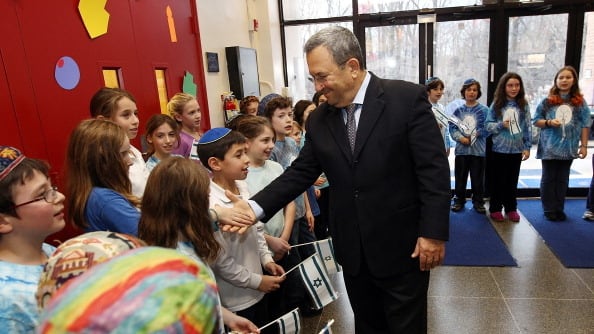In his recently published review of research on American Jews and Israel, Shmuel Rosner makes observations that he claims are “clear and agreed upon by almost all researchers” (and I am sure, he means to include myself). One is an assertion of empirical fact. He writes, “Young American Jews are not 'distancing' from Israel. They still feel ‘attached’ to it.” Another is a policy judgment: “There is no crisis of lack of attachment in relations between Israel and the American Diaspora that requires intervention.”
Both statements are technically defensible (and could conceivably reflect my thinking). However, both paper over some important fine points.

My concurrence that young American Jews still feel attached to Israel derives from the Workmen’s Circle (WC) survey of American Jews that Prof. Samuel Abrams and I conducted this spring. We found that non-Orthodox younger Jews, age 35 and under, are more attached to Israel than those 35 to 44. We measured Israel attachment by way of two questions: “How emotionally attached are you to Israel?” and, “To what extent do you see yourself as pro-Israel.” At the same time, the youngest adults’ heightened attachment to Israel is accompanied by decreased trust in Israel's policies toward the Palestinians.
The results pointed to a turnaround in the slide in Israel attachment among successively younger age cohorts reported in prior studies. In this study, as in so many others, Israel attachment levels are lower among those 35 to 44 than among those 45 to 54, who are in turn less attached than those 55 to 64. By contrast, in the Workmen’s Circle survey, attachment among those under 35 surpassed that of the next older cohort.
We speculate that the cumulative impact of Birthright Israel in bringing so many young Jews to Israel may be emerging. We may be seeing a bump upward in Israel attachment for an entire cohort of young people, owing to their far more frequent travel to Israel due in large part to Birthright.
However, the overall arrest in declining attachment does not mean, as Rosner asserts, that “young Jews are not distancing themselves from Israel.” For while the overall average just bumped up due to travel, the ongoing corrosive effect of intermarriage continued. The impact of intermarriage on Jewish engagement is generally negative but especially negative upon attachment to Israel. As one telling factoid: Among in-married parents in the New York area, 33 percent report that their children have been to Israel; among the intermarried, the figure drops to a mere 4 percent. On a larger scale, the ongoing and increasing intermarriage rate among the non-Orthodox—and in the New York area, 50 percent of recently marrying non-Orthodox couples were intermarriages—promises to continue to produce distancing among their children. Distancing continues, especially as the children of the intermarried are so much under-represented among travelers to Israel, those who experience the countervailing impact of intermarriage.
What’s also noteworthy is that increased attachment to Israel does not bring with it increased confidence in Israel’s policies and leadership in the context of the conflict with the Palestinians. Younger Jews express far less enthusiasm for Israel’s stance in the conflict. On an Index of “Trust in Israeli Leaders,” younger respondents scored about twenty points lower than their parents’ age groups. The index consisted of three questions pertaining to seeing Israel as truly interested in peace, seeing the Palestine Authority as uninterested in peace, and favoring U.S. support exclusively for Israel (rather than U.S. support for Palestinians or for both sides equally).
We also know from other questions that the youngsters are more likely to see Israeli leaders as really trying to work to prevent a Palestinian state and less likely to blame the Palestinians rather than the Israelis for the stuck peace process. As Sam Abrams noted, “While attachment to Israel and trust in Israeli leaders are correlated, they are not the same sentiment. Jews can be both attached to Israel and assume fairly independent if not skeptical stances toward Israeli government policies.”
Thus, declining overall attachment may have abated; but, attachment should not be seen as equivalent with support for Israel’s policies.
In short, the world is more complex than Shmuel Rosner makes it out to be. The rise in the overall mean level of attachment should not obscure two other observations: Distancing continues for the children of the intermarried, if not the Jewish spouses in intermarriages. And attachment to Israel does not mean confidence in Israel’s current leadership. Complexity is the necessary partner to accuracy.






